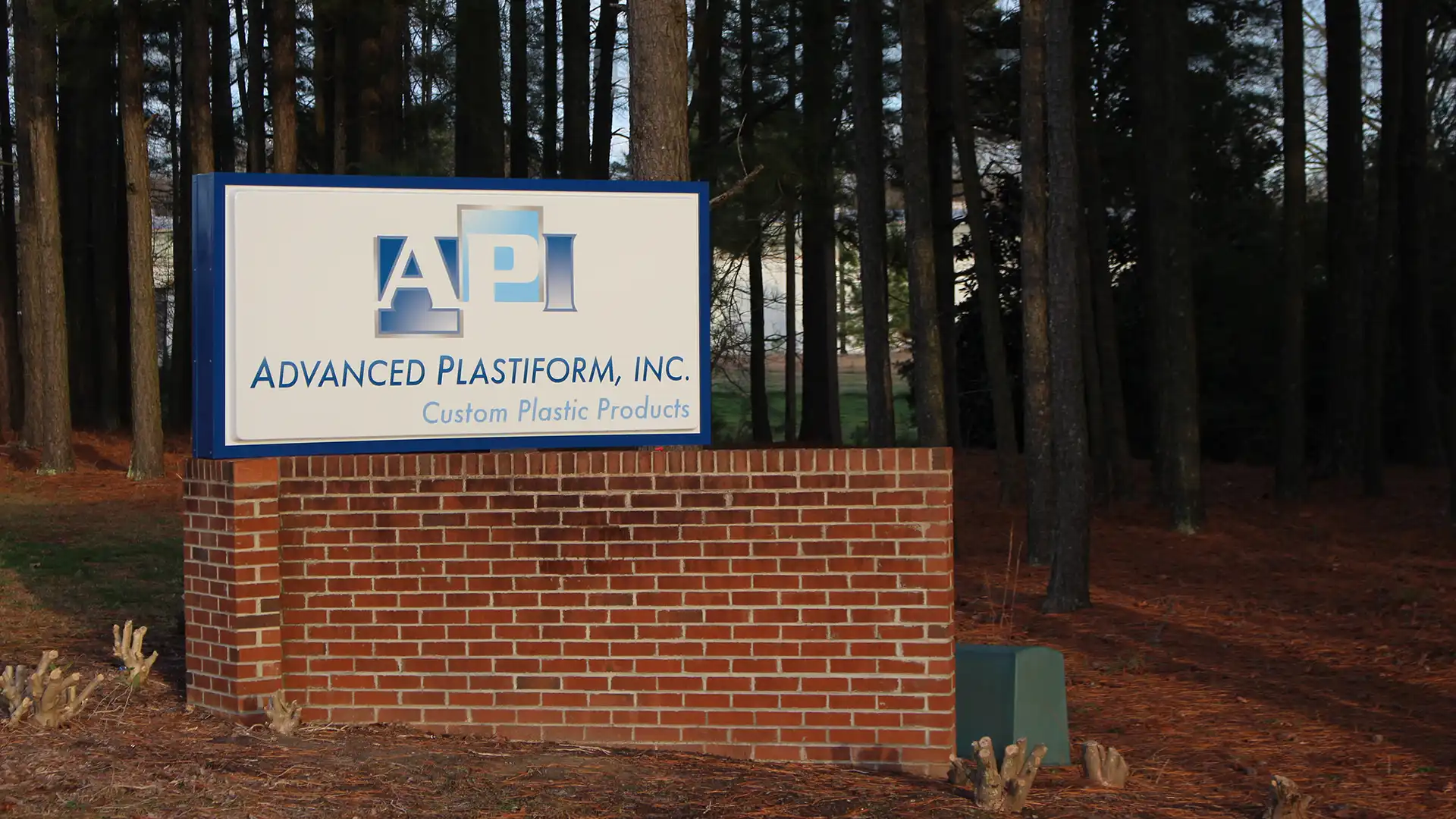Thermoforming involves heating up large sheets of thermoplastics and shaping them around a custom tool…
Global supply chains require effective, efficient material handling, and having the proper supplies and equipment improves operations, increases efficiency, and reduces the risk of products being damaged. Plastics play a key role in all of these things. To shed more light on how plastics are improving material handling, our thermoforming company is exploring the type of plastics commonly used and how they are customized to ensure the best results while reducing costs.
Why Use Plastics in Material Handling
Material handling includes virtually every step in the loading, unloading, packaging, and moving process around a factory or warehouse. Having the right equipment in this process is key to success because a slowdown in one area can lead to everything grinding to a halt, causing an expensive loss in productivity.
To avoid these slowdowns and get the best results, thermoplastics are used because they offer the following benefits:
- High durability and a long lifespan to reduce maintenance and minimize machine breakdowns;
- Customization options to get the best results, including reducing static
- Lightweight to increase safety and decrease the risk of injury;
- Inexpensive and quick to fabricate to reduce operating costs;
- Resistant to water, mold, heat, and abrasion.
Much of what is used around factories and warehouses is made from plastic, including:
- Chutes and trays used for moving products
- Packaging
- Conveyor belts and rollers
- Storage and shipping containers
- Safety equipment
- Shelving
Thermoplastics Commonly Used in Material Handling
Thermoplastics are polymers that can be heated until pliable or even a liquid state and molded or formed into a new shape without their chemical structure changing. This versatility makes them incredibly popular for creating equipment and supplies in material handling. The most common thermoplastics you'll find in factories and warehouses include:
HMWPE
High molecular weight polyethylene is durable, inexpensive, and has multiple qualities that make it ideal for material handling. It has a low coefficient of friction and in its original form, is inherently smooth and slippery so items glide across it with ease. Additionally, it's resistant to both chemicals, impacts, abrasion, and moisture, so it's ideal for lining chutes, conveyors, and wear strips.
ABS
ABS is a highly durable material that is resistant to impact, moisture, and abrasion and offers low conductivity. ABS is often used in packaging, shipping containers, and for protecting electronics and electrical enclosures.
Polycarbonate
Polycarbonate offers the transparency of glass but is 200 times stronger while being much lighter in weight. It's resistance to impacts, heat, and moisture makes it ideal for safety shields, windows, and other uses around the warehouse or factory.
Polypropylene
Polypropylene is a more cost-effective alternative to HDPE or ABS while providing comparable resistanct to heat, chemicals, and impact. However, polypropylene is more often used when an incredibly flexible plastic is necessary as polypropylene is highly resistant to cracking due to weight and use. This ensures it can be used repeatedly, unlike wood pallets that often crack over time from stress and usage.
Customizing Plastics for Specific Purposes
While most plastics inherently have needed properties, like impact resistance, moisture resistance, and heat tolerance, they can also be customized for added functionality. For example, plasticizers can be added to PVC to transform it from a hard, brittle material to an incredibly soft, flexible material. In material handling, plastics are often customized to ensure the following qualities:
- Anti-static coatings and conductive compounds to minimize static shock in totes, bins, and conveyors
- UV protection
- Internal lubrication to reduce wear and friction
- Increase strength with reinforced polymers that increase impact resistance and fatigue performance
- Flame retardant compounds increase safety and resist igniting or burning
Get a Quote for Thermoformed Plastics Used in Material Handling
Advanced Plastiform, Inc. is the leading thermoforming and injection molding company in the Southeast with a well-earned reputation for high-quality custom plastics with a fast turnaround time and a low per unit price. We work with companies across the Mid-Atlantic and Southeast, including North Carolina, South Carolina, Pennsylvania, Maryland, Tennessee, Georgia, and Virginia, providing supplies, equipments, and components to improve the material handling process, reduce costs, and ensure productivity.

